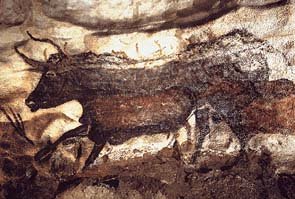Doctor of Shamanism Course Essay
By: Reverend Cynthia Ewing
(note: This essay is on an older version of the Shamanism course. We have a new course available which speaks almost not at all of different substances and more about the different aspects of Shamanism.
When I signed up for this course I was very excited. I had taken shamanism classes in the past and thought it would help build up my knowledge and experience on the subject. My memory was refreshed when I read the history of Shamanism. I know that it is the oldest form of religion in the world and has various forms which I will always resonate with.
A major part of this course was talking about the different substances that Shamans use to reach their heightened state of awareness. I did learn a lot about the different substances and how they work as well as how long the effects last. I do think the author went into this aspect way too much. It is my personal belief that a person does not need to take substances to obtain an altered state. There is trance dancing, drumming, hypnosis etc. just to name a few different ways to achieve this state. He talked very little about these other states. I did however like reading about the government’s role in the control of religious substances. It is almost impossible to get these substances for religious purposes.
I liked the third lesson when the author gave us a vocabulary list. The one that stood out for me was the spirit wife/husband/spouse/lover. I actually have one of my own who I would never give up for anything. He has helped me through a very difficult period of loneliness and longing. He is so full of love. I would recommend this to anyone! I never knew it was part of shamanism. Also on this vocabulary list was talking about psychopomp, soul loss and shapeshifting. These are all major roles of a shaman. I was performing psychopomp before I even knew what it was. I would have liked to have gone more in depth into what each of the definitions truly meant.
My interest was definitely taken in when I read about how controlled substances were used in the Bible. It called out for certain incense and anointing oil to be made by Moses. It called out for Cannabis to be used in this mixture as well as myrrh and cinnamon. He then explains that cannabis has had many uses including healing properties and its ability to be used as clothing and paper. The government in his opinion seems to have caused this herb to be banned because of its universal uses that would cause other companies to go out of business since its uses are so varied.
Another subject the author talks about is ethics. He raises the question of a shaman’s true ability. A shaman uses magic and tricks at times to prove what he can truly do to help heal a person. Sometimes a shaman has to not only talk to spirits, but may have to be sly and trick them or even steal from them to get pieces of the person’s soul returned to them. The person needing the healing has to be able to trust the shaman can perform all of these tasks. If not how can that shaman help that person.
Rites of passage was another lesson that was covered. I would have liked to have gone more in-depth here as well. The author spoke of the way a person is called to the shamanic path by illness or birth into the shamanic line. I was called into shamanic service, but not in the ways described in the lesson. Also some of the rituals were not talked about like the dismemberment journey. Here is where the totems initiate the shaman by removing body parts and replacing them with new better ones. He did mention a shaman being reduced down to one bone and having to rebuild himself. This could be a dismemberment ceremony as well, but he could have shown that it does not have to be so gruesome and arduous. These are extreme cases today.
I agreed with his ethics of who is a shaman and what you may call yourself. A shaman never calls himself/herself and shaman. That is left to the people that this person helps. The shaman today calls him or herself a shamanistic practitioner. This is to show humbleness during the process of the great spiritual work the shaman is performing and not to upset the spirits who are helping him or her.
Overall I did like the course. The history of shamanism was helpful as well. I learned a lot about the different substances used during ceremonies and the governments control over them. The vocabulary was wonderful although I would have liked it to have been expanded upon. This was a great learning experience.
Rev. Cynthia Ewing
**********************
Ordination with the Free Online Ordination button.
The ULC, run by Rev. Long, has created a chaplaincy program to help train our ministers. We also have a huge catalog of Universal Life Church materials. I've been ordained with Seminary since the beginning and have loved watching the continual growth of the seminary.
Try our new free toolbar at: ULC Toolbar

No comments:
Post a Comment